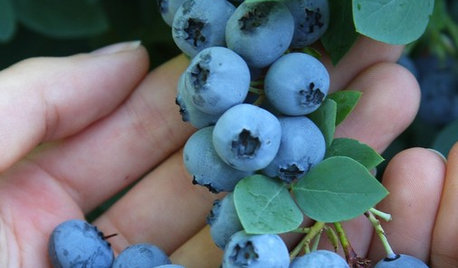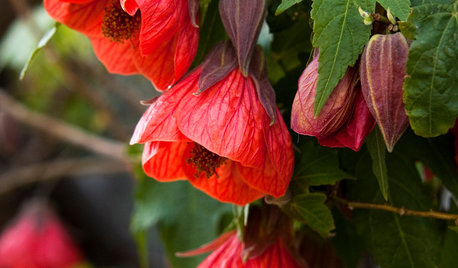Hybridizing: Is it wrong?
Pardancanda 7 NJ
23 years ago
Related Stories

MAN SPACESA Los Angeles Basement Becomes a Cozy Man Cave
Raw storage space in a Hollywood writer's home is transformed into a masculine home office hybrid
Full Story
EDIBLE GARDENSSummer Crop: How to Grow Blueberries
Plant blueberries in spring or fall for garden beauty through three seasons — and a sweet superfood in summer
Full Story
COLORBest Ways to Use Exclusive Plum, Sherwin-Williams’ Color of 2014
Pretty, moody, maybe even a neutral, this toned-down grayish purple can work in any room. Here's how
Full Story
FURNITURE7 Sofas With a Story
Historic Sofa Styles add 'Collected' Class to All Kinds of Interiors
Full Story
GARDENING GUIDESGreat Design Plant: Chinese Lantern
Light the way to visual delight in the garden with Chinese lantern's papery blooms and pretty colors
Full Story
GREAT HOME PROJECTSHow to Install Energy-Efficient Windows
Learn what Energy Star ratings mean, what special license your contractor should have, whether permits are required and more
Full Story
EDIBLE GARDENSHow to Grow 10 Favorite Fruit Trees at Home
Plant a mini orchard in fall, winter or early spring to enjoy fresh-off-the-tree fruit the following year
Full Story
PURPLE FOLIAGEGreat Design Plant: Smoke Tree
Plant a 'Grace' smoke tree for months of red, burgundy and purple foliage and an unusual spring bloom
Full Story
GARDENING GUIDES5 Great Grasses for a New Lawn
Learn about maintenance, wear tolerance, ideal climate and more for these top turf choices to pick the right one for you
Full Story
LANDSCAPE DESIGNSecrets of a Successful Water Garden
Relax. Having a water garden is much easier once you understand the basics
Full StoryMore Discussions






David Zlesak 4
Shady_character 5A
Related Professionals
Saint Louis Park Landscape Architects & Landscape Designers · Newcastle Landscape Architects & Landscape Designers · Paradise Landscape Architects & Landscape Designers · Canton Landscape Contractors · Kaysville Landscape Contractors · Paso Robles Landscape Contractors · Waldorf Landscape Contractors · Fairfax Carpenters · Bedford Carpenters · Odenton Carpenters · Tucson Carpenters · Wrentham Carpenters · Ridgewood Fence Contractors · Antelope Fence Contractors · Lexington Fence ContractorsSparaxis 9
glenda 8 pnw
Bob Byrnes PA 5b/6a
Maria Perez VA7
Shady_character 5A
bob_schatan
SeanMC
Violetrose
Plant_Geek
godplant
Countrysale
jon_d
rogerhall
mstrecke
adamk
Hugo_Guessit
godplant
nick_b79
farmersam
Juniperus
marbree
Don_1
matt_bonsai
keking
AArooon1
geoforce
keking
geoforce
keking
mistercross
Elakazal
keking
keking
seedboy
maineman
eskota
maineman
eskota
koicool1
ccdry
beaufort-2006
marbree
jodik_gw